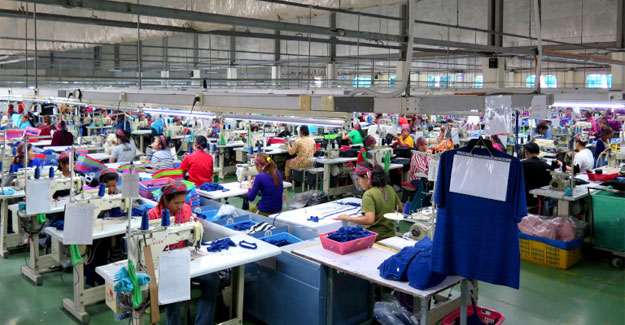
UNECE, Partners Call For Sustainable Garment Sector At EU-Africa Business Forum 2022
Africa is home to over 1 billion people, of which 60% are below the age of 25. The continent reports steady economic growth, with a projected GDP increase of 3.8% in 2022, and the fastest-growing middle-class in the world. Textiles and clothing is a fast-growing industry in several African countries. In fact, the apparel and footwear industry in Sub-Saharan Africa amounts to US$ 31 billion and is expected to grow at 5% until 2024. Currently, the African continent is responsible for 5.8% of the world’s cotton production and employs more than 450,000 people. And `Made in Africa’ is gathering momentum. Near-shoring trends to African regions offer an opportunity to better address value chain disruptions and bottlenecks. Up until now, the EU has been Africa’s largest trade and investment partner, accounting for a third of African commodity exports in 2018. Nevertheless, the EU’s regulatory environment and growing demand for sustainable business models in the textile industry risk to hamper trading operations. While these are necessary goals, they pose a challenge for African exports in terms of higher compliance costs, adoption of enhanced human skills, and technologies, and new requirements in the EU. “Building the traceability of sustainable value chains across the two continents with support of blockchain technology”, was the focus of recent discussions at a side-event organized by the UNECE-ITC initiative for Enhancing Transparency and Traceability of Sustainable Value Chains in Garment and Footwear, with OACPS; the Egyptian Apparel Export Council Egypt and Bishara Group; Filmar Spa; Hugo Boss; and UNIDO Egypt. It was part of the 7th EU-Africa Business Forum 2022, jointly organised by the African Union Commission (AU), the EU and European business organisations, which brought together more than 15,000 experts, government representatives, international organizations, and stakeholders. Innovative financial instruments and technical support To deliver results, the Forum launched the Joint EU Africa Business Declaration to influence policymaking and business activities, and reconcile concrete actions for a sustainable fashion and textile industry of the future:
- Support of SMEs’ transition to sustainable business models by financing measures in production processes and reduce trade barriers.
- Increased investment to achieve economic integration of MSMEs and harness the full potential of advanced technologies for traceability of sustainability performance.
- Capacity building to accelerate MSMEs’ compliance with ESG requirements.
- Implementation of Textile Industry Hubs across Africa, based on the experience by the African Cotton and Textile Industry Federation (ACTIF).
- Business incentives in form of tariffs, access to finance and trade facilitation.
- International organisations or EU Agencies’ prevention and monitoring of costs transfer to suppliers of sustainability compliance measures.
- Window I – “Technology transfer and ESG support for capacity building and partnerships enhancement among value chain actors” to advance compliance with ESG standards and tech and knowledge transfer.
- Window II – “Green Textile, Green Apparel and Ethical Fashion in Africa and Europe”, to support SMEs in the overall green transition to sustainable value and supply chains, for those not yet ready.
Textile Excellence
If you wish to Subscribe to Textile Excellence Print Edition, kindly fill in the below form and we shall get back to you with details.












